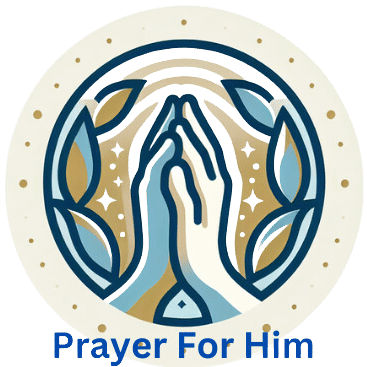An unequally yoked relationship refers to a partnership where two people, often in the context of a romantic or marital relationship, have significant differences in values, beliefs, or faith. The term originates from the Bible, specifically 2 Corinthians 6:14, which advises against being “unequally yoked” with unbelievers, symbolizing the incompatibility of two people bound together in an unequal partnership. The phrase is typically applied in religious and spiritual context, yet it can be applied in other spheres of life as well, such as moral belief, personal values, and life decisions.
In an unequally yoked relationship, partners may feel disconnected on a spiritual and emotional level due to conflicting belief systems and may experience communication challenges and a mismatch in long-term goals. These are particularly challenging when having children with diverse belief systems or when dealing with family pressure and social expectations.
The impact on marriage and family can be significant, with potential for resentment, emotional strain, and conflicts over important decisions like parenting styles and religious upbringing. However, overcoming these challenges often requires open communication, respectful dialogue, and a willingness to compromise. Couples may benefit from mentorship, counseling, or guidance from religious leaders to navigate these complexities. In some cases, though, recognizing when a relationship is no longer sustainable is crucial to maintaining emotional well-being and personal growth.
What Does “Unequally Yoked” Mean?
The phrase “unequally yoked” comes from religious doctrine in 2 Corinthians 6:14 that instructs not to form unions with those who are not of like faith. While its original use pertained to spiritual unions, over time it has been applied to describe numerous relationship patterns. So what does it signify in today’s relationships?
In a very real sense, an unequally yoked relationship is a relationship where two individuals possess conflicting values, most prominently in areas of religion and spiritual belief. The “yoke” is a farming tool that binds two animals together so that they walk in a synchronized fashion. When two people are unequally yoked, they cannot walk in synchrony and hence feel tension and at times frustration.
The most common correlation with this idea is religious or spiritual difference, particularly in Christian relationships. The question is straightforward yet essential: Can two with diverse spiritual backgrounds, belief systems, or moral outlooks successfully build a life together? This article will explore how these differences affect relationships, outline challenges that accompany them, and offer ways to overcome them.
Signs of an Unequally Yoked Relationship
Identifying signs of an unequally yoked relationship is critical in understanding its dynamics and whether it can be sustained in the long term. Included here are key indicators that may signify a relationship is unbalanced.
1. Emotional and Spiritual Disconnection
A primary marker of an unequally yoked relationship is a spiritual and emotional disconnection. When both partners are not on the same spiritual level or are not able to have meaningful dialogue when it comes to faith and values, tension is created. Such a disconnection typically leads to feelings of loneliness, frustration, and burnout.
2. Differences in Basic Beliefs and Moral Principles
When two people come from varying moral backgrounds, their values may clash on fundamental issues such as family roles, management of money, and child-rearing. For example, one may stress religious values of charity and generosity, while the other may stress secular values of self-reliance and independence.
3. Disagreements Over Decisions and Personal Priorities
An unequal relationship can be one where there is constant disagreement over life decisions. These are decisions on a day-to-day level to more significant ones, such as where you live, whether you have children and where you raise them. Incompatibility in priorities between you and your partner is a source of long-term tension when one of you desires to be on a religious path and the other doesn’t.
Common Challenges in Unequally Yoked Relationships
Couples in unequally yoked relationships often face several challenges that can strain their partnership and personal well-being. Let’s examine some of the most common struggles.
1. Raising Children with Different Faiths or Beliefs
One of the most significant challenges is deciding how to raise children when parents have different beliefs. If one partner is a devout Christian and the other follows a different religion—or has no religion at all—deciding which faith tradition to follow can create significant conflict.
2. Decision-Making and Long-Term Vision Conflicts
Every relationship requires shared goals for it to thrive. In an unequally yoked partnership, however, differences in vision often emerge. One partner may want to pursue spiritual growth together, while the other may feel indifferent or resistant to such a commitment. Over time, these differences can cause division and emotional strain.
3. Social and Family Pressures
Families and communities often have strong opinions about relationships, especially when there are religious differences. The pressure to conform to family expectations can be overwhelming, leading to feelings of inadequacy and tension within the couple’s relationship.
The Impact of Being Unequally Yoked on Marriage and Family
The long-term effects of an unequally yoked marriage can be profound, especially on the family unit.
1. Parenting with Different Religious Perspectives
When parents have differing religious beliefs, the struggle to agree on a faith-based upbringing becomes a major issue. Children are highly impressionable, and raising them in an environment of conflicting belief systems can lead to confusion and emotional challenges.
2. Emotional Strain and Resentment
Couples in such relationships often face emotional strain due to the lack of spiritual unity. Resentment can build over time if one partner feels that their values or spiritual needs are neglected, leading to a loss of connection and trust.
3. The Role of Extended Family in Reinforcing Division
The influence of extended family can either help or hinder a couple’s ability to work through faith differences. If one partner’s family pushes for a particular religious viewpoint, it can exacerbate feelings of division. This pressure often deepens the emotional disconnection between the couple.
Overcoming Differences in an Unequally Yoked Relationship
While navigating an unequally yoked relationship is challenging, it’s not impossible. Below are practical ways couples can overcome their differences and build a healthier relationship.

1. Open and Respectful Communication
Healthy communication is crucial for any relationship. In an unequally yoked partnership, open discussions about faith, beliefs, and values can help both partners understand each other’s perspectives and foster mutual respect.
2. Finding Common Values Beyond Religion
Even in relationships where there are deep spiritual divides, couples can still find common ground in shared values such as honesty, compassion, and loyalty. By focusing on these foundational principles, couples can strengthen their bond despite differences in faith.
3. Seeking Guidance from Mentors, Counselors, or Religious Leaders
Sometimes, the best way to navigate spiritual differences is to seek help from a mentor or relationship counselor. A spiritual advisor or a marriage therapist can offer valuable insight and advice to help both partners address their challenges with a constructive approach.
When to Walk Away: Is an Unequally Yoked Relationship Sustainable?
At times, the differences in an unequally yoked relationship may be too deep to overcome, leading individuals to wonder whether it’s worth continuing. Here’s when to consider walking away:
1. Red Flags Indicating Incompatibility
If one partner is unwilling to respect or compromise on faith-related matters, it might signal that the relationship is not sustainable. Emotional exhaustion and ongoing disagreements over core values can create a toxic environment that’s hard to heal.
2. When Compromise Is Not an Option
While compromise is often a key element in healthy relationships, when it comes to deeply held spiritual beliefs, there may be no room for negotiation. If one partner feels pressured to abandon their core values for the sake of the relationship, it can lead to bitterness and resentment.
3. Understanding Personal Limits and Emotional Well-Being
It’s essential to evaluate your emotional resilience in an unequally yoked relationship. If the strain is causing significant mental or emotional harm, it may be time to make a difficult decision about whether staying in the relationship is truly in your best interest.
Biblical and Spiritual Perspectives on Being Unequally Yoked
From a biblical perspective, 2 Corinthians 6:14 clearly advises against being unequally yoked with someone who does not share the same faith. This scripture has been interpreted to mean that spiritual harmony is a cornerstone of a strong and lasting relationship. Various Christian denominations emphasize that a shared faith is vital for marriage to succeed.
Many Christian teachings also highlight the importance of a faith-centered partnership and advise individuals to seek relationships that honor spiritual unity. A biblical worldview encourages believers to enter unions with those who share similar doctrinal beliefs and moral values.
Real-Life Testimonies: Stories from Unequally Yoked Couples
Couples who navigate the waters of an unequally yoked relationship often share stories of struggle and growth. Many report that faith differences initially led to significant challenges, from disagreements about raising children to feeling emotionally disconnected.
However, others share how they’ve learned to embrace interfaith tolerance and respect each other’s beliefs, finding ways to build a harmonious relationship despite the differences. These real-life examples offer hope and practical advice for couples facing similar challenges.
Resources for Unequally Yoked Couples
If you find yourself in an unequally yoked relationship, there are resources to support you. Many Christian counseling services offer guidance specifically tailored to faith-based relationship issues. Books on interfaith marriage and spiritual counseling can also provide tools for couples looking to bridge the gap in their differences.
Through online courses, church ministries, and relationship counseling, couples can gain tools to handle faith-related conflicts and build a lasting connection despite spiritual differences.
Conclusion: Finding Peace in Your Relationship Decision
Whether you choose to stay in an unequally yoked relationship or walk away, finding peace in your decision is essential. Trusting the process and allowing personal growth can bring clarity. Many individuals find strength in seeking spiritual guidance through prayer, reflection, or counseling.
No matter the outcome, faith resilience and personal growth are integral to navigating difficult relationships. The journey may involve pain, but it also offers the opportunity for deep self-discovery and emotional healing.
Hi, I’m Sitara. Writing is my way of connecting with the world and expressing the thoughts that swirl in my heart and mind. At 23, I find myself constantly inspired by the beauty of spirituality, the complexities of love, and the lessons life teaches us every day. My words are a reflection of my journey—raw, honest, and deeply personal. I hope my stories and reflections resonate with you, offering comfort, inspiration, or simply a moment of quiet introspection.
Thank you for being here and sharing this space with me. Let’s explore the depths of life together.




